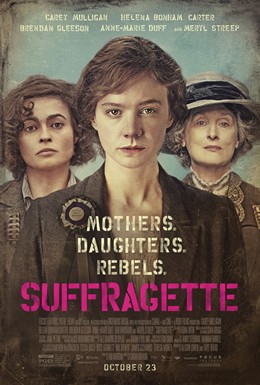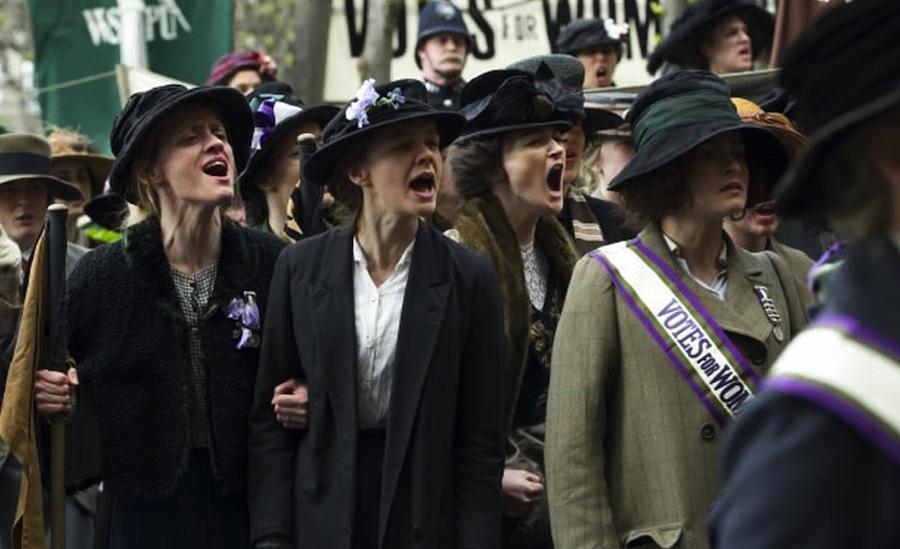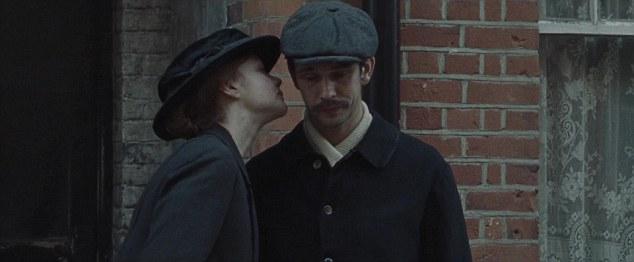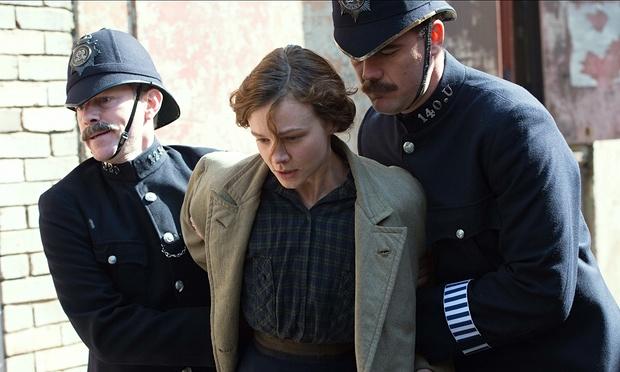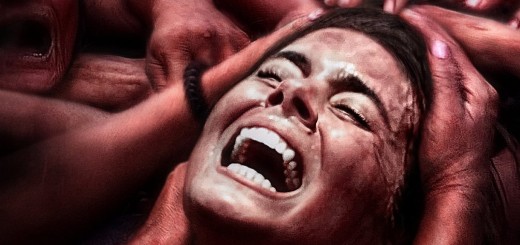SUFFRAGETTE Review
Director: Sarah Gavron
Genre: Drama
Release: 2015
Flicking the bean of the feminist agenda, Hollywood has birthed a film oiled with the desire to be recognized by the Academy, but suffers from the inability to make a greater statement outside of its “Based On A True Story” plot structure. It’s to nobody’s surprise that film studios will shamelessly capitalize on just about any generational trend, and the growing interest in social justice among 20-somethings is just another means to feed the Hollywood pipeline. Although the film industry is consistently working out of its own self-interest, it’s surprising to see Hollywood create Oscar-bait that feels so dated despite its undeniably in-vogue political agenda.
“Vote for Best Picture!”
SUFFRAGETTE is a perfect example of how a timely subject can be turned into a prehistoric brain fart. Within its first 30 minutes, SUFFRAGETTE uses every trick in the book to make its message unequivocally clear, leading up to a frustratingly boring viewing experience that does nothing to challenge its audience. Wasting Carey Mulligan’s talent by having her play an uninspired female protagonist, director Sarah Gavron throws her passive lead from one loud-and-proud feminist to the next, with little to no narrative weight. But perhaps SUFFRAGETTE’s biggest sin is that it fails to remind viewers that women’s rights are still a concern in the 21st century, and except for a brief text scroll during the credits, this 2015 turkey refuses to reaffirm its agenda for its viewership.
The film’s most timely aspect is its portrayal of hipster fashion
Naturally, SUFFRAGETTE’s most important quality is its political agenda of gender equality, and yet it is completely inept in treating its subject with nuance. Each line is delivered with the subtlety of a battering ram, and where that might work in some films (DO THE RIGHT THING and DEAR WHITE PEOPLE come to mind), SUFFRAGETTE tries so hard to take itself seriously that the entire experience feels dehumanizing in its theatrics. Mulligan’s journey is tiresome and heavy-handed, showcasing every cliché that comes with gender inequality, from low-pay to abusive husbands.
The firm grip of the patriarchy
But where Gavron truly fails is in making Mulligan’s journey more than just a history-book walkabout. In a safari tour of London in 1912, SUFFRAGETTE feels like the last detail of feminism that viewers need to be exposed to in 2015. There’s nothing inherently wrong with self-indulgent feminist cinema, because after all, it upholds a noble cause. But why make a film solely about the fight for women to vote when there are dozens of more relevant social issues that women face today? The real problem with SUFFRAGETTE is that it isn’t the film viewers need right now. At a time where feminism is pressing a concern as ever, and hot-button topics are around every corner, it feels misguided to make a film that’s rooted in period drama.
Cinematically, SUFFRAGETTE falls short left-and-right, despite its ambitious period setting. Although costumes and sets look acceptable, everything is bogged down by a haphazard visual style that comes across as painfully phoned-in. But probably the biggest culprit of SUFFRAGETTE is the embarrassing use of Meryl Streep, an actress who despite having third billing on the poster is in the film for five minutes, only to disappear and be plastered throughout the film on newspapers. But by God if Gavron doesn’t try to remind her audience that Streep is in this picture, constantly referring to her character and hyping up her brief appearance like an in-film advertisement.
An awkward walk down memory lane filled to the brim with brash characters, SUFFRAGETTE’s complete lack of narrative restraint and a by-the-book visual approach stifle its hunt for Oscar gold. What’s frustrating about SUFFRAGETTE isn’t that it is a bad film, but that every year, like clockwork, these types of excessively mediocre pictures believe that they are bringing something worthwhile to the table during the awards season. Although it might be satisfying to watch Carey Mulligan stick it to the patriarchy, these short-term pleasures are followed by long-term reminders of how boring the entire experience is. What needs to be accepted is that a worthwhile cause does not equate to a strong narrative, and as long as plot and character feel like a slapdash effort, no political agenda, regardless of how passionately it’s presented, can keep a viewer’s attention. And after all, if nobody’s watching, how can it bring change?

